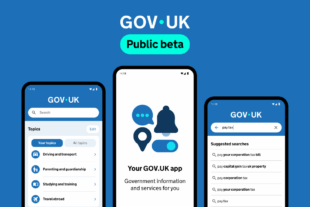So, how many people would rather watch Wimbledon than visit a government website?
Over the past few weeks we've been trying to find out the answer to this - and similar questions - as we've looked at how external events affect traffic to GOV.UK.
Usually, aggregate traffic to GOV.UK is fairly predictable, with Monday the busiest day, and Saturday the quietest:

But on 8 July, we spotted this trend on GDS’s Performance Platform GOV.UK dashboard:

It didn’t take much insight to correlate this drop with the beach and barbecue weather on Sunday, 7 July. And, of course, in the afternoon there was something rather rivetting on the TV as people tuned into the Wimbledon men’s final.
At update for last Sunday (14th) shows traffic was still below average, but without the diversion of Wimbledon:

On a more serious note, GOV.UK is a vital source of accurate info in the event of emergencies. Following the deposing of the Egyptian government, travellers were not surprisingly concerned about visiting the country.
GOV.UK's travel advice to Egypt was very findable in Google:

and there has been a lot more traffic to the advice, with a peak on 3 July:

So what's the take-away for those of us working on GOV.UK? I think it's about knowing (y)our business, understanding the context (both policy outcomes and events) and planning an investigative approach. I had a Twitter conversation with someone recently and I loved his reply:
 The GOV.UK app went live in public beta in July 2025. Find out what’s been happening, and what’s coming next,
The GOV.UK app went live in public beta in July 2025. Find out what’s been happening, and what’s coming next,